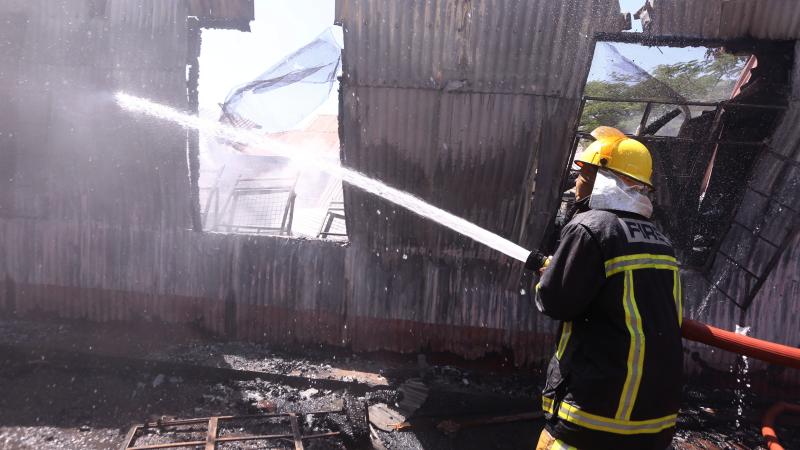×
The Standard e-Paper
Smart Minds Choose Us

Fire fighters put out off fire in a dormitory at Kisumu Boys High School on Tuesday. The police are yet to establish the cause of the fire. [Collins Oduor, Standard]
Task forces called for streamlining of boarding schools and establishing guidance and counselling departments.